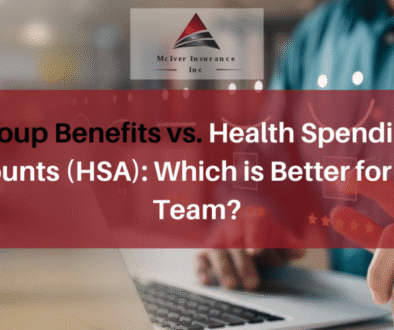Insurance Riders and Additional Coverages
Insurance policies offer a great deal of comfort to many people, as they offer a safety net for families in the event of any tragic event. However, insurance policies can cost a good deal of money and not all policies will offer full coverage.
Luckily, with time people have become a lot more aware of their needs and are proactive in their approach, and, with increasing competition, insurance providers looked to offer more options to customers.
This is where insurance riders come in, giving customers more control over the specific types of coverage they can have under their insurance policy. This comprehensive guide is to educate you on insurance riders, their benefits, and the different types of insurance riders you can choose from.
What Is A Life Insurance Rider?
In a nutshell, riders are additional benefits and coverages that can be purchased, to be added into the umbrella of your basic insurance coverage. By getting supplemental coverage through these riders, you stay even further protected from specific unfortunate events.
For example, in the event of your death, your insurance policy will offer a payout, but if you were to be a victim of a serious injury and were to be disabled as a result, there isn’t much your policy would do for you. If such an insurance policy had a disability rider attached to it, then you would see benefits that could help you with treatment costs and maintenance.
Traditionally, those looking for extra coverage would have to invest in multiple policies, but with insurance riders, you can customize your policy to the point where you have as much coverage as would make you comfortable, and not worry about investing in another policy.
Benefits Of Insurance Riders
Better Coverage
A life insurance policy will only offer benefits in the event of death, but it’s possible that the death was caused by an event that resulted in prolonged hospital stays and treatments.
Your life insurance won’t offer coverage specifically for that and, if you choose to pay your hospital bills using the benefits from the life insurance policy, then you’re left with less money that your family can use to maintain their quality of life and meet expenses.
Riders offer coverage for such matters and you could even ensure you have coverage for your hospital bills, any treatments, and even if you don’t die and are afflicted with a disability.
Peace Of Mind
Riders can offer you and your family a lot of peace of mind as well. Death isn’t the only situation where a family might need financial support for the coming years.
Disability, terminal illness, and serious injuries can also require the same financial security, not just for the family’s sustenance, but also for the hospital bills resulting from such disability, illness, or injury. With insurance riders, you find just that!
More Than Just Payouts
A basic life insurance policy will give you a payout in the event of death, but with riders, you can get additional benefits. For example, with a child education rider, the insurance policy would give a payout for the death of the insured AND further coverage for your child’s education costs.
Types of Riders
While there are many different types of insurance riders, we’re going to go over some of the more popular ones, to give you an understanding of how they work and exactly what benefits can be offered.
Waiver of Premium
This is one of the most common insurance riders that people opt for in Canada. If you have this rider attached to your life insurance policy and you are a victim of an injury and subsequent disability, then your insurer will waive your premium payments, while still keeping the insurance policy intact.
This means you won’t be paying for any premiums but your family will still receive benefits from the insurance policy in the event of your death. The waiver will also apply to any other riders you may have purchased and you won’t be required to make any payments for coverage under those riders.
However, one thing to keep in mind is that every rider policy will have a different definition of “disability”, so thoroughly read your policy to make sure you’re properly covered.
Accelerated Death Benefit
This rider pays out a portion of your death benefit in the event of a terminal illness. In most policies, you’ll be entitled to withdraw up to 50% of your death benefit, or $250,000, whichever is less.
Also, you should know that there aren’t any conditions as to where you can spend the money that you withdraw as your insurance provider will not normally ask for receipts or proof of expenditure. You can use this amount to cover hospital bills or any other expenses, but keep in mind that whatever amount you withdraw will be that much less money that your family will receive in the event of your death.
As with the premium waiver rider, make sure what your policy defines as a “terminal illness” to ensure you have the proper coverage.
Hospitalization Income
This insurance rider offers a fixed income for each day that you’re in the hospital, which can help out with a lot of expenses around the house, fuel costs of the family running to the hospital and back, or with babysitters for the kids while you and your spouse are at the hospital.
There will be a cap on the total amount that is paid and the number of days in the hospital, so be sure to read the policy in detail to make sure.
Which Insurance Rider? Talk To An Expert!
The type of rider you get depends entirely on your needs and circumstances. However, it is highly recommended to speak to an expert before selecting a rider on your policy.
Insurance experts such as those at McIver Insurance, can guide you on what insurance riders (if any) would be best suited to your needs and the impact each rider can have on your overall coverage and policy.



